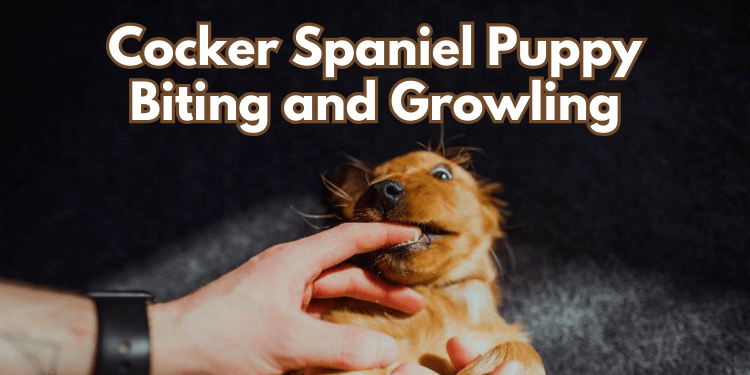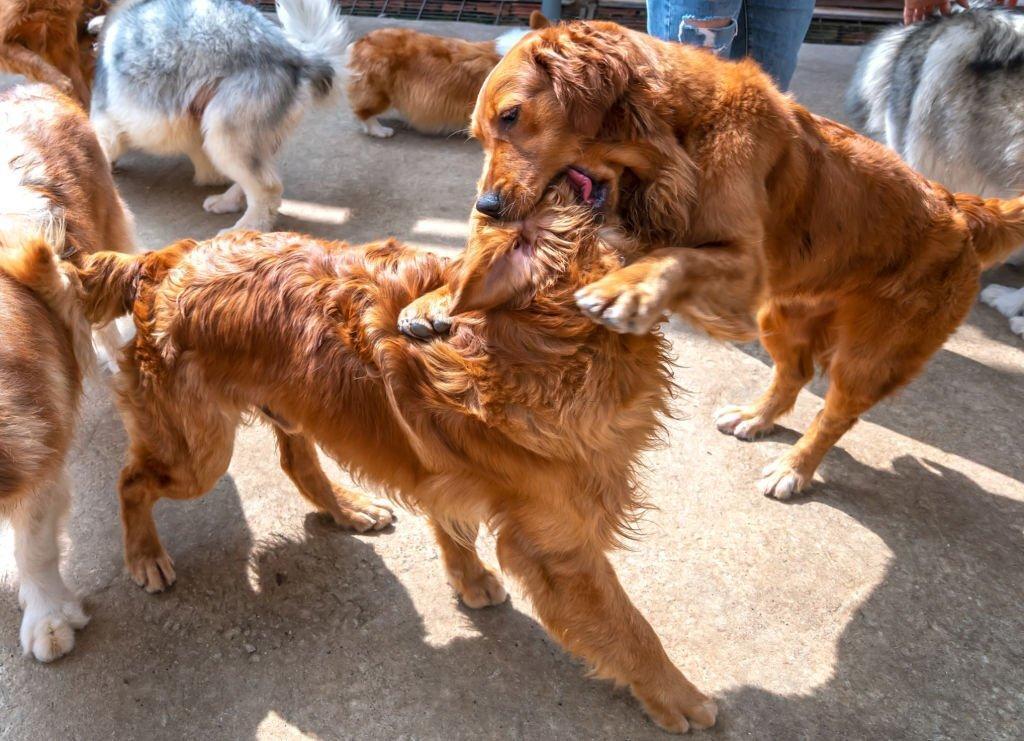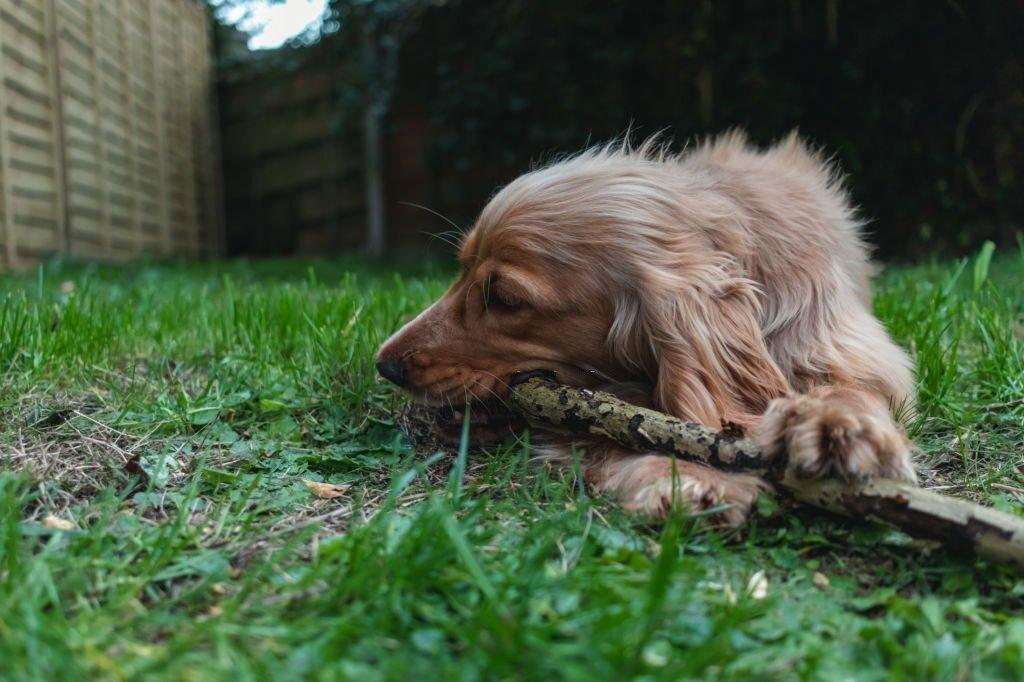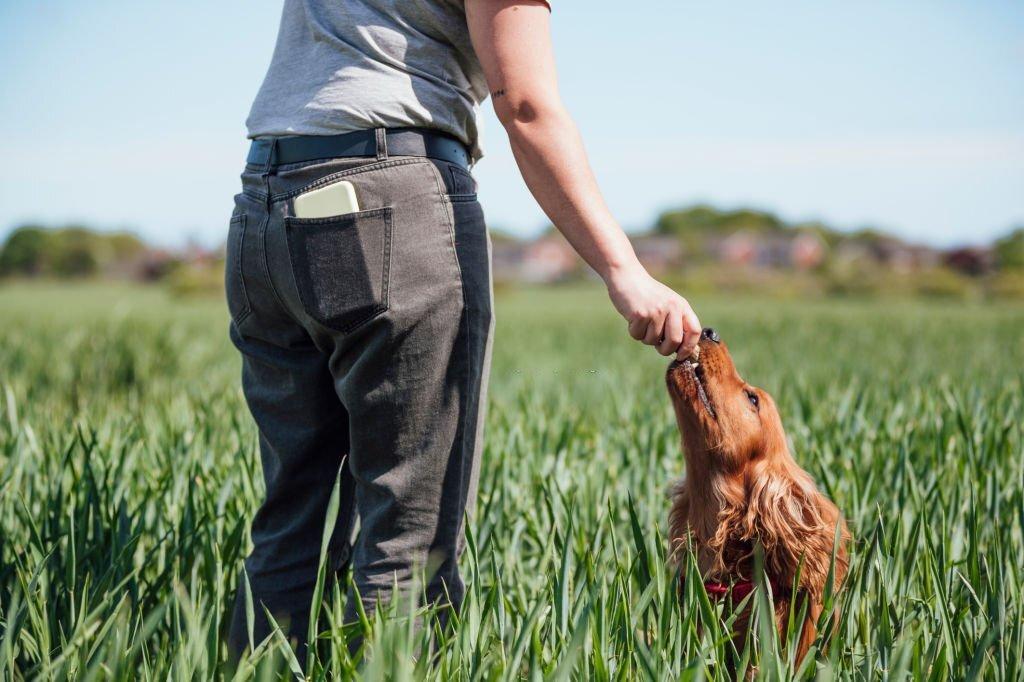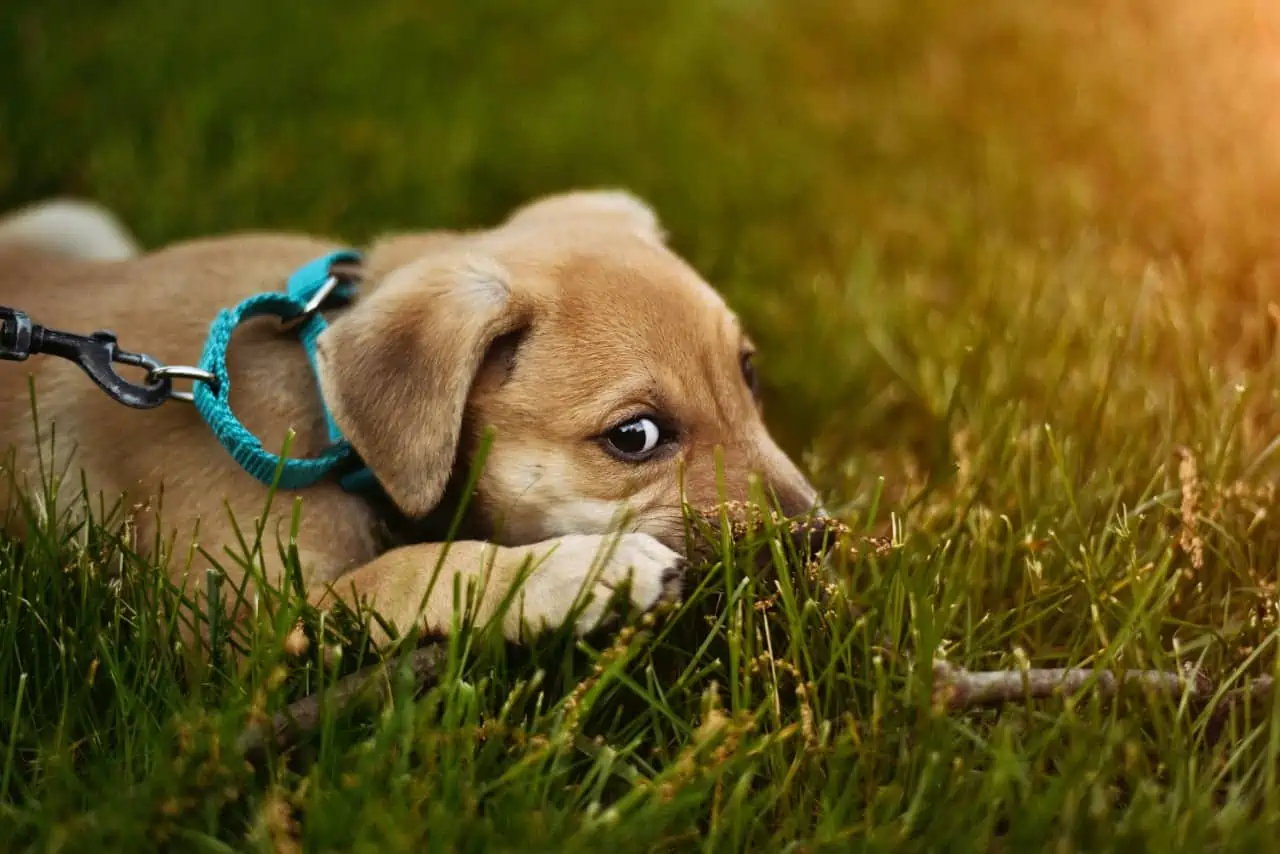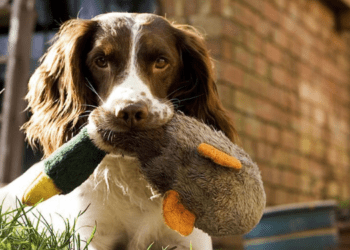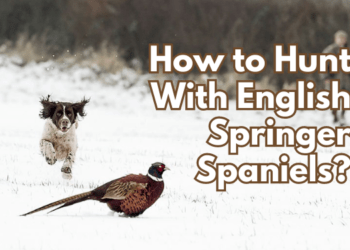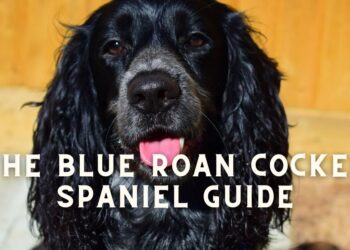The reason behind your Cocker Spaniel puppy biting and growling could be due to teething discomfort, playfulness, inadequate socialization, attention-seeking, fear, territorial tendencies, training gaps, or potential medical issues. Proper training, socialization, and offering chew toys can help manage these behaviors.
In this article, we delve into the intricacies of why Cocker Spaniel puppies might resort to biting and growling behaviors, shedding light on the factors that contribute to their actions. The article also covers effective training techniques, socialization, positive reinforcement methods, and avoiding mistakes while training your puppy.
Most importantly, let’s start with understanding the temperament of cocker spaniels and what could be the reason behind their biting and growling.
Table of Contents
- 1 Temperamental Traits of Cocker Spaniels
- 2 Understanding Cocker Puppy Behavior
- 3 Playfulness vs. Aggression: Distinguishing the Difference
- 4 Why Is Your Cocker Spaniel Puppy Biting And Growling At You And Others?
- 5 Effective Training Techniques to Manage Cocker Spaniel Puppy Biting
- 6 Handling the Growls: Tips to Address Cocker Spaniel Puppy Growling
- 7 The Importance of Early Socialization for Cocker Spaniel Puppies
- 8 Mistakes to Avoid While Training
- 9 Celebrating Progress: Recognizing Improvement
- 10 Conclusion
- 11 Frequently Asked Questions (FAQs)
Temperamental Traits of Cocker Spaniels
Cocker Spaniels are generally known for their friendly, playful, and sociable temperament. However, like any breed, certain factors can cause aggression, such as fear, boredom, and a lack of early socialization. It’s important to distinguish between playfulness and aggression to ensure the safety of both the dog and those around them.
Understanding Cocker Puppy Behavior
The teething phase: A natural cause for biting
During the teething phase, puppies experience discomfort as their adult teeth come in. This can lead to biting and chewing behaviors as a way to relieve the pain. It’s important to understand that this behavior is entirely normal for teething puppies and can be trained away.
Key Points to Understand About Puppy Teething And Biting:
Timing: Puppy teething is intense but usually ends when adult teeth come in at around six months.
Symptoms: When teething occurs, you might see your puppy drooling or find little blood spots on their toys. Sore gums and discomfort are common during this process.
Exploration: Puppies explore the world with their mouths, and biting is a natural part of their exploration process. They may also use their teeth to instigate play and attention.
Breed tendencies: Some breeds, particularly herding breeds, may be predisposed to nip, herd, and chase small, fast-moving things.
Tips To Manage And Curb Biting Behavior During The Teething Phase:
Provide safe chew toys: Offer your puppy appropriate chew toys to redirect their chewing and relieve teething pain.
Start a teeth-cleaning routine: Introduce gentle handling and dog-friendly supplies early to establish a teeth-cleaning way.
Supervise interactions: Actively supervise interactions between your puppy, children, or other pets to manage biting and mouthing. Temporary separation within the home, using stair gates, can be helpful.
Discourage biting: Teach your puppy that biting stops any attention from you. Avoid reinforcing the behavior by withdrawing attention when they bite.
Training and socialization: Enroll your puppy in training classes and provide opportunities for socialization to teach them appropriate behavior and bite inhibition.
Playfulness vs. Aggression: Distinguishing the Difference
To distinguish between playfulness and aggression in Cocker Spaniels, here are some tips:
Observe body language: Pay attention to your dog’s body language to determine if they are playing or showing signs of aggression.
Train and socialize: Positive reinforcement training and early socialization can help prevent fear-based aggression.
Consult a professional: If you are unsure about your dog’s behavior or are experiencing aggression, consult a professional dog trainer for guidance.
Why Is Your Cocker Spaniel Puppy Biting And Growling At You And Others?
Cocker Spaniel puppies, like all puppies, use biting and growling as a regular communication technique. However, what may seem playful for them might be dangerous for others. In some cases, even a minor dog bite can have legal consequences for owners. Therefore, it’s essential to understand the reason behind these habits and manage them as soon as possible.
Here are some reasons why Cocker Spaniel puppies may growl:
Playfulness: Cocker Spaniel puppies may bite or growl during play as a way to communicate and interact with their littermates.
Resource guarding: Cocker Spaniels have a substantial resource guarding trait, which means they may growl when they feel their food, toys, or other possessions are being threatened.
Fear: Growling can also be a sign of fear aggression. If a Cocker Spaniel puppy is frightened, it may growl or even bite as a way to communicate their discomfort.
Pain: Growling can be a sign of pain or discomfort. If a Cocker Spaniel puppy is experiencing pain, it may growl to communicate their distress.
Teething: Like all puppies, Cocker Spaniel puppies undergo a teething phase where their adult teeth come in. This can cause discomfort, leading them to nibble or bite as a way to relieve the pain.
Fear or anxiety: Nibbling or biting can also be a response to fear or anxiety. If a Cocker Spaniel feels threatened or uncomfortable in a specific situation, they may resort to nibbling as a defensive behavior.
Effective Training Techniques to Manage Cocker Spaniel Puppy Biting
However, do you know you may go to jail if your Dog Bites Someone? That’s why it’s important to train your puppies at an early age.
The good thing is cocker spaniel puppy bitings can be managed and trained away with consistent training and positive reinforcement techniques. Here are some effective training techniques to manage biting in Cocker Spaniels:
Consistency: Consistency is critical when training your Cocker Spaniel puppy not to bite. Ensure all family members follow the same training method and are consistent in their approach.
Positive reinforcement: Use positive reinforcement techniques to promote good behavior and prevent biting.
Redirect and provide appropriate chew toys: Offer your Cocker Spaniel appropriate chew toys to redirect their biting behavior and provide them with an outlet for teething discomfort.
The Shake Method: Another method involves using a tin can filled with a few pebbles, coins, or dried peas taped inside. Each time your puppy bites, say “no” firmly and shake the can to create a loud noise. This will startle your puppy and discourage the biting behavior.
Teach self-control: Play with your Cocker Spaniel puppy in short, 15-second bursts, and then take a break. This will teach them self-control and discourage overexcitement and biting.
Socialization: Early socialization is vital to help Cocker Spaniels feel more comfortable and confident in different situations, reducing the likelihood of fear-based biting.
Handling the Growls: Tips to Address Cocker Spaniel Puppy Growling
It’s crucial to address growling behavior to ensure the safety of both the puppy and those around them. Here are some tips for managing Cocker Spaniel puppy growling:
Observe body language: Pay attention to your puppy’s body language to determine if they are growling playfully or showing signs of aggression.
Avoid punishment: Avoid punishing your puppy for growling, as this can increase anxiety and fear-based aggression.
Consult a professional: If you are unsure about your puppy’s behavior or are experiencing aggression, consult a professional dog trainer for better guidance and training.
You must also try to integrate redirecting with chew toys, socialization, positive reinforcement methods, and the above methods.
The Importance of Early Socialization for Cocker Spaniel Puppies
Early socialization is critical for Cocker Spaniel puppies to ensure they grow up to be friendly, relaxed, and happy dogs in the future. Here are some reasons why early socialization is crucial for Cocker Spaniel puppies:
Preventing behavior problems: Early socialization can help prevent serious behavior problems in adult dogs, such as fear, avoidance, and aggression. Exposing puppies to various people, animals, and environments, they learn to feel comfortable and confident in different situations.
Building positive associations: Socializing puppies at a young age helps them develop positive associations with new experiences, people, and animals. This helps them develop into well-rounded and adaptable dogs.
Promoting good manners: Socialization teaches puppies how to interact appropriately with other dogs and people. It helps them learn proper manners, such as not jumping, biting, or being overly fearful or reactive.
Reducing anxiety and fear: Early socialization helps puppies become more resilient and less prone to anxiety and fearfulness. It exposes them to different stimuli, noises, and environments, making them familiar and comfortable with the world around them.
To effectively socialize your Cocker Spaniel puppy, consider the following tips:
Gradual exposure: Introduce your puppy to new experiences, sights, sounds, and situations gradually and in a positive and non-threatening way. Start with calm and controlled environments and progressively increase the level of stimulation.
Positive reinforcement: Enforce positive reinforcement techniques, such as treats, praise, and rewards, for your puppy’s calm and confident behavior during socialization experiences. This helps them associate positive experiences with new situations.
Introduce to different people and animals: Expose your puppy to a variety of people, including children and other animals, but make sure to do it in a controlled and supervised manner. This helps them learn to interact appropriately and be comfortable in different social settings.
Enroll in puppy classes: Puppy classes provide a structured environment for socialization and learning. They offer opportunities for puppies to interact with other dogs. You will also receive guidance from professional trainers.
Mistakes to Avoid While Training
When training for your Cocker Spaniel puppies biting issues, it’s essential to avoid inevitable mistakes that can hinder their progress and development. Here are some common mistakes to avoid:
Using negative reinforcement: Avoid using punishment or harsh methods during training, such as shouting or sounding annoyed. Positive reinforcement techniques are more effective and help build a strong bond between you and your puppy.
Inconsistency: Be consistent in your training approach and expectations. Inconsistency can confuse your puppy and make it harder for them to understand what is expected of them.
Skipping basic obedience: Don’t overlook the importance of teaching basic obedience commands, such as sit, come, stay, etc. These commands provide a foundation for further training and help establish boundaries and control.
Lack of socialization: Socialization is crucial for Cocker Spaniel puppies. Failing to expose them to different people, animals, and environments can lead to fearfulness and behavior problems later on.
Not addressing separation anxiety: Cocker Spaniels are prone to separation anxiety, so it’s important to address this issue early on. Gradually acclimate your puppy to being alone and provide them with appropriate mental and physical stimulation when you’re away.
Impatience: Training takes time and patience. Avoid becoming frustrated or impatient with your puppy’s progress. Stay calm, consistent, and positive throughout the training process.
To ensure successful training, it’s also crucial to have the proper training supplies, such as a treat pouch, collar, leash, and appropriate toys. Additionally, make sure your puppy is in the right mindset for training by providing exercise, mental stimulation, and a comfortable environment.
By avoiding these common mistakes and following positive reinforcement techniques, consistency, and proper socialization, you can effectively train your Cocker Spaniel puppy and build a solid and positive relationship with them.
Celebrating Progress: Recognizing Improvement
Training a Cocker Spaniel puppy not to bite or growl takes time and patience, but progress can be made with consistent training and positive reinforcement techniques. Here are some signs of improvement to look for:
Reduced frequency and intensity: As your puppy learns appropriate behavior, you should notice a reduction in their biting and growling frequency and intensity.
Improved response to redirection: With consistent redirection and positive reinforcement, your puppy should begin to respond better to redirection and appropriate chew toys.
Increased socialization: As your puppy becomes more comfortable and confident in different situations, it should become less prone to fear-based biting and growling.
Improved obedience: As your puppy learns basic obedience commands, such as “sit” and “stay,” they should become more responsive and less likely to engage in inappropriate behavior.
Increased trust and bonding: As you build a positive and consistent training relationship with your puppy, you should notice an increase in trust and bonding between you and your furry friend.
Conclusion
Raising a well-behaved Cocker Spaniel takes time, patience, and consistency. It’s important to understand their behavior, use positive reinforcement techniques, and provide appropriate socialization to ensure they grow up to be friendly, relaxed, and happy dogs. Mistakes to avoid during your Cocker Spaniel puppy biting and growling training include using negative reinforcement, inconsistency, lack of socialization, and skipping basic obedience. By recognizing progress, celebrating minor improvements, and seeking professional guidance, you can effectively train your Cocker Spaniel puppy and build a solid and positive relationship with them.
Frequently Asked Questions (FAQs)
At what age will my Cocker Spaniel puppy outgrow biting?
Cocker Spaniel puppies typically outgrow biting between three and five months of age. This is considered a normal phase they will naturally grow out of as they mature. Puppy biting is often a result of teething and play behavior. It’s important to remember that each puppy is different, and the exact timeline for outgrowing biting may vary.
Is growling always a sign of aggression?
It’s important to understand that growling does not always indicate aggression. In fact, growling can be a way for dogs to avoid conflict and maintain order in social situations. However, it’s important to distinguish between playful growling and signs of aggression. By understanding their behavior and body language and providing proper training and socialization, you can help prevent aggression and ensure a happy, healthy relationship with your furry friend.
How long should I dedicate to training each day?
For puppies under six months of age, training sessions should be kept short and frequent, around 5-10 minutes, several times a day. This is because puppies have short attention spans and can become easily distracted. As your puppy grows older, their attention span will increase, and you can gradually increase the length of the training session. However, keeping sessions focused and engaging is important to prevent boredom and frustration.
What if my training techniques aren’t working?
If your training techniques aren’t working, consider troubleshooting the issue, increasing the rate of reinforcement, or seeking help from a professional dog trainer or behaviorist. Remember to celebrate progress and be consistent in your approach. Appeasement behavior is valuable to dogs because it prevents conflict. Most importantly, it’s essential to avoid common mistakes such as using negative reinforcement and inconsistency during training.
When should I consider professional training or consultation?
If your Cocker Spaniel puppy displays ongoing biting and growling behavior that training hasn’t effectively curbed, it might be wise to seek professional help. Indications for this step include the persistence of aggressive behavior accompanied by attempts to bite, the absence of progress despite your training consistency, concerns about safety due to the puppy’s behavior, and uncertainty about using correct training techniques. Opting for a professional trainer or behaviorist can prove beneficial in these scenarios.
If you are a dog lover then, Subscribe to our weekly newsletters. No Spams!
